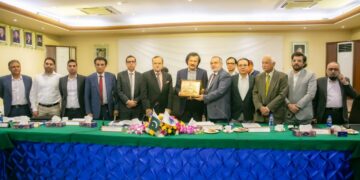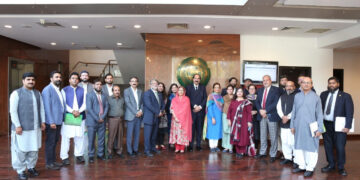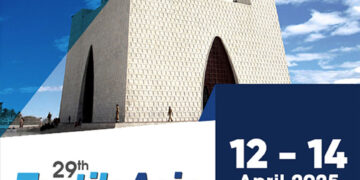Pakistan: In a recent statement, leaders of the United Business Group (UBG) have underscored the urgent need to kickstart the second phase of the China-Pakistan Economic Corridor (CPEC) by initiating the development of five special economic zones (SEZs). The UBG, including S M Tanveer, Chief Patron, Zubair Tufail, President, Khalid Tawab, Regional Chairman, Hanif Gohar, Secretary General, and Syed Mazher, Member Core Committee, emphasized the pivotal role of these SEZs in advancing Pakistan’s economic landscape.
Recognizing CPEC’s vital contribution to Pakistan’s economic development, the UBG reaffirmed its unwavering support for the project’s seamless continuation, stressing the importance of consistent progress without delays or disruptions. The group called for redoubled efforts to establish a new working group dedicated to creating five new economic corridors under the second phase, aligning with the Five Es framework: export, energy, equity, environment, and e-Pakistan.
Highlighting the urgency of expediting Phase 2 of CPEC, the UBG advocated for the establishment of five new economic corridors, including the Corridor of Job Creation, Corridor of Innovation, Corridor of Green Energy, and Inclusive Regional Development. They urged the planning ministry of Pakistan and the National Development and Reform Commission (NDRC) of China to prepare comprehensive concept papers outlining clear roadmaps for the future development of each sector.
In addition, the UBG proposed a collaborative approach to maximize the success of SEZs within Pakistan, commending Pakistan’s “One plus Four” model. This model envisions partnering each SEZ in Pakistan with one province from China, one industry group to develop specialized clusters within these zones, one zone from China to provide technical expertise, and a state-owned enterprise to spearhead SEZ development. According to the UBG, this framework would expedite the establishment and growth of SEZs in Pakistan, enhancing their competitiveness and attractiveness.
Moreover, the UBG stressed the importance of enhancing regional connectivity, particularly through critical infrastructure projects like the Gwadar Port and the M-8 motorway. These projects, they noted, would strengthen trade links and facilitate regional integration, thereby fostering economic growth and development.
The UBG reiterated its commitment to driving forward the second phase of CPEC and advancing Pakistan’s economic prosperity through strategic collaborations, innovative initiatives, and robust regional connectivity.















